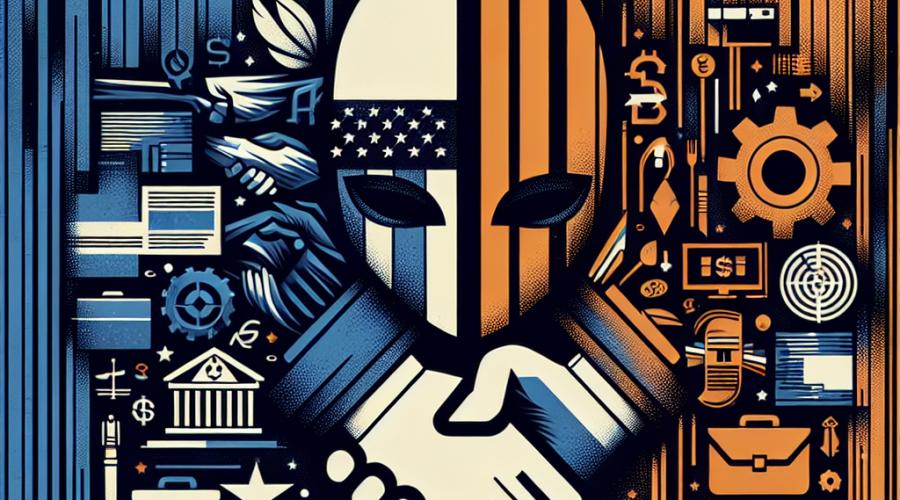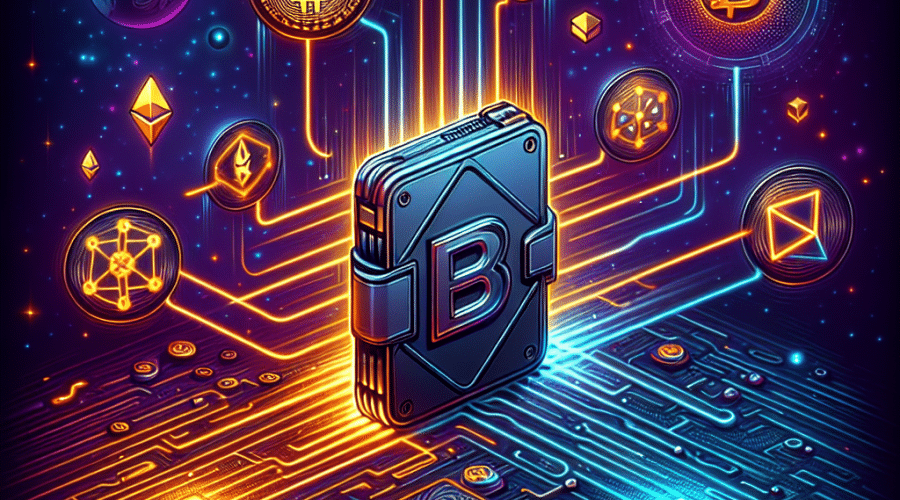April 18, 2025
Updated:
May 6, 2025
Project Eleven Launches Q-Day Prize: 1 BTC for Breaking Bitcoin’s ECC Key using Quantum Computing


Financial Analyst & Content Creator | Expert in Cryptocurrency & Forex Education
James Carter is an experienced financial analyst, crypto educator, and content creator with expertise in crypto, forex, and financial literacy. Over the past decade, he has built a multifaceted career in market analysis, community education, and content strategy. At AltSignals.io, James leads content creation for English-speaking audiences, developing articles, webinars, and guides that simplify complex market trends and trading strategies. Known for his ability to make technical finance topics accessible, he empowers both new and seasoned investors to make informed decisions in the ever-evolving world of digital finance.
Latest posts by James Carter
-
James Carter Financial Analyst & Content Creator | Expert in Cryptocurrency & Forex Education
crosscurve bridge suffered a 3 million dollar exploit in january 2024 exposing major vulnerabilities in cross-chain defi protocols this article analyzes how the hack happened its impact on users token prices and the broader blockchain ecosystem discover lessons for protocol developers the need for stronger security standards and how incidents like this shape the future of decentralized finance
Read more -
James Carter Financial Analyst & Content Creator | Expert in Cryptocurrency & Forex Education
President Trump has nominated former Fed governor Kevin Warsh as the next Federal Reserve chair, signaling a potential shift toward more hawkish monetary policy amid high inflation and a divided central bank. The announcement has triggered volatility across global markets and added uncertainty to the economic outlook, while key job reports, tech earnings focused on AI investments, and turmoil in commodities contribute to a pivotal week shaping the future of US monetary policy and financial markets
Read more -
James Carter Financial Analyst & Content Creator | Expert in Cryptocurrency & Forex Education
ethereum faces mounting pressure as bitmine immersion technologies, led by strategist tom lee, struggles with massive eth holdings and escalating losses. market fears grow as projections suggest eth could fall below 2000, threatening wider crypto sector stability, defi protocols, and investor sentiment across both retail and institutional segments
Read more -
James Carter Financial Analyst & Content Creator | Expert in Cryptocurrency & Forex Education
Bybit’s entry into the neobank sector signals the convergence of crypto exchanges and traditional banking, driving new standards in security, compliance, and asset tokenization. Discover how platforms like DeepSnitch AI and Bitcoin Hyper are shaping the future of digital finance by offering real-time AI security, blockchain scalability, and innovative real-world asset solutions amid rising institutional interest and regulatory demands.
Read more -
James Carter Financial Analyst & Content Creator | Expert in Cryptocurrency & Forex Education
Explore how Infinex, the decentralized super app led by Synthetix founder Kain Warwick, launched its token generation event and aims to revolutionize the DeFi space by aggregating other dApps, offering prediction markets, NFT marketplaces, and creating a single login across its applications.
Read more -
James Carter Financial Analyst & Content Creator | Expert in Cryptocurrency & Forex Education
US Senate passes a $1.2 trillion bipartisan spending package narrowly avoiding a government shutdown and securing temporary funding for the Department of Homeland Security. Ongoing disputes over Immigration and Customs Enforcement reform highlight deep divisions in Congress, raising concerns over future budget gridlocks and operational stability for essential federal agencies.
Read more -
James Carter Financial Analyst & Content Creator | Expert in Cryptocurrency & Forex Education
Crypto markets are facing extreme fear as major coins see sharp declines, prompting savvy investors to focus on early-stage crypto presales offering stability and real-world utility. Discover how innovative projects like ZKP, DeepSnitch AI, PepeNode, and SUBBD are redefining fair launches, security, meme-driven utility, and the creator economy by combining deflationary tokenomics, anti-whale protections, and AI-powered features for safer, more equitable investment opportunities during market turbulence.
Read more -
James Carter Financial Analyst & Content Creator | Expert in Cryptocurrency & Forex Education
AI-focused blockchain company OpenLedger partners with onchain platform Story Protocol to establish a new standard that ensures AI systems use creative work legally, paying rightful owners. This move addresses rising lawsuits around AI and intellectual property, aiding in rights protection for the $80 trillion estimated digital rights and data market. Stakeholders can expect enforceable IP rights directly linked to the AI execution layer, promoting licensed, traceable content use in AI models.
Read more -
James Carter Financial Analyst & Content Creator | Expert in Cryptocurrency & Forex Education
Global crypto markets faced extreme volatility as $601 million in futures positions were liquidated in just one hour, sparking more than $1.57 billion in total daily losses. Explore the causes behind the rapid sell-off, its historical context, market red flags, exchange risk management strategies, regulatory responses, and future implications for traders. Learn key lessons from one of the largest liquidation events in digital asset history and how it’s reshaping risk practices for Bitcoin, Ethereum, and major altcoins.
Read more -
James Carter Financial Analyst & Content Creator | Expert in Cryptocurrency & Forex Education
Ledger announces native support for Etherlink, an EVM-compatible smart rollup on the Tezos blockchain, empowering users and institutions with enhanced secure management of DeFi assets, seamless access to top protocols, support for tokenized real-world assets, and a streamlined user experience. Discover how this integration is transforming secure, flexible, and interoperable blockchain finance while paving the way for future innovations like native Tezos staking.
Read more -
James Carter Financial Analyst & Content Creator | Expert in Cryptocurrency & Forex Education
Bithumb, South Korea’s leading crypto exchange, has temporarily suspended STABLE token deposits and withdrawals from February 4th, 2024 due to key network upgrades. While trading remains fully available, the move safeguards user assets during technical transitions. Learn about the reasons behind the suspension, expected tech improvements, how Bithumb maintains market stability, and what users should know during upgrade periods. Stay informed on resumption timelines and best practices for secure crypto transactions.
Read more -
James Carter Financial Analyst & Content Creator | Expert in Cryptocurrency & Forex Education
US crypto’s future hangs in the balance as the Senate debates a landmark market structure bill impacting regulation, innovation, and mainstream adoption. Industry leaders warn that legal clarity and real-world utility are vital as global competitors move ahead. Explore how upcoming legislation, political shifts, and practical adoption will shape America’s digital asset landscape over the next critical years.
Read more
Latest posts from the category News
-
James Carter Financial Analyst & Content Creator | Expert in Cryptocurrency & Forex Education
crosscurve bridge suffered a 3 million dollar exploit in january 2024 exposing major vulnerabilities in cross-chain defi protocols this article analyzes how the hack happened its impact on users token prices and the broader blockchain ecosystem discover lessons for protocol developers the need for stronger security standards and how incidents like this shape the future of decentralized finance
Read more -
James Carter Financial Analyst & Content Creator | Expert in Cryptocurrency & Forex Education
President Trump has nominated former Fed governor Kevin Warsh as the next Federal Reserve chair, signaling a potential shift toward more hawkish monetary policy amid high inflation and a divided central bank. The announcement has triggered volatility across global markets and added uncertainty to the economic outlook, while key job reports, tech earnings focused on AI investments, and turmoil in commodities contribute to a pivotal week shaping the future of US monetary policy and financial markets
Read more -
James Carter Financial Analyst & Content Creator | Expert in Cryptocurrency & Forex Education
ethereum faces mounting pressure as bitmine immersion technologies, led by strategist tom lee, struggles with massive eth holdings and escalating losses. market fears grow as projections suggest eth could fall below 2000, threatening wider crypto sector stability, defi protocols, and investor sentiment across both retail and institutional segments
Read more -
James Carter Financial Analyst & Content Creator | Expert in Cryptocurrency & Forex Education
Bybit’s entry into the neobank sector signals the convergence of crypto exchanges and traditional banking, driving new standards in security, compliance, and asset tokenization. Discover how platforms like DeepSnitch AI and Bitcoin Hyper are shaping the future of digital finance by offering real-time AI security, blockchain scalability, and innovative real-world asset solutions amid rising institutional interest and regulatory demands.
Read more -
James Carter Financial Analyst & Content Creator | Expert in Cryptocurrency & Forex Education
Explore how Infinex, the decentralized super app led by Synthetix founder Kain Warwick, launched its token generation event and aims to revolutionize the DeFi space by aggregating other dApps, offering prediction markets, NFT marketplaces, and creating a single login across its applications.
Read more -
James Carter Financial Analyst & Content Creator | Expert in Cryptocurrency & Forex Education
US Senate passes a $1.2 trillion bipartisan spending package narrowly avoiding a government shutdown and securing temporary funding for the Department of Homeland Security. Ongoing disputes over Immigration and Customs Enforcement reform highlight deep divisions in Congress, raising concerns over future budget gridlocks and operational stability for essential federal agencies.
Read more -
James Carter Financial Analyst & Content Creator | Expert in Cryptocurrency & Forex Education
Crypto markets are facing extreme fear as major coins see sharp declines, prompting savvy investors to focus on early-stage crypto presales offering stability and real-world utility. Discover how innovative projects like ZKP, DeepSnitch AI, PepeNode, and SUBBD are redefining fair launches, security, meme-driven utility, and the creator economy by combining deflationary tokenomics, anti-whale protections, and AI-powered features for safer, more equitable investment opportunities during market turbulence.
Read more -
James Carter Financial Analyst & Content Creator | Expert in Cryptocurrency & Forex Education
AI-focused blockchain company OpenLedger partners with onchain platform Story Protocol to establish a new standard that ensures AI systems use creative work legally, paying rightful owners. This move addresses rising lawsuits around AI and intellectual property, aiding in rights protection for the $80 trillion estimated digital rights and data market. Stakeholders can expect enforceable IP rights directly linked to the AI execution layer, promoting licensed, traceable content use in AI models.
Read more -
James Carter Financial Analyst & Content Creator | Expert in Cryptocurrency & Forex Education
Global crypto markets faced extreme volatility as $601 million in futures positions were liquidated in just one hour, sparking more than $1.57 billion in total daily losses. Explore the causes behind the rapid sell-off, its historical context, market red flags, exchange risk management strategies, regulatory responses, and future implications for traders. Learn key lessons from one of the largest liquidation events in digital asset history and how it’s reshaping risk practices for Bitcoin, Ethereum, and major altcoins.
Read more -
James Carter Financial Analyst & Content Creator | Expert in Cryptocurrency & Forex Education
Ledger announces native support for Etherlink, an EVM-compatible smart rollup on the Tezos blockchain, empowering users and institutions with enhanced secure management of DeFi assets, seamless access to top protocols, support for tokenized real-world assets, and a streamlined user experience. Discover how this integration is transforming secure, flexible, and interoperable blockchain finance while paving the way for future innovations like native Tezos staking.
Read more -
James Carter Financial Analyst & Content Creator | Expert in Cryptocurrency & Forex Education
Bithumb, South Korea’s leading crypto exchange, has temporarily suspended STABLE token deposits and withdrawals from February 4th, 2024 due to key network upgrades. While trading remains fully available, the move safeguards user assets during technical transitions. Learn about the reasons behind the suspension, expected tech improvements, how Bithumb maintains market stability, and what users should know during upgrade periods. Stay informed on resumption timelines and best practices for secure crypto transactions.
Read more -
James Carter Financial Analyst & Content Creator | Expert in Cryptocurrency & Forex Education
US crypto’s future hangs in the balance as the Senate debates a landmark market structure bill impacting regulation, innovation, and mainstream adoption. Industry leaders warn that legal clarity and real-world utility are vital as global competitors move ahead. Explore how upcoming legislation, political shifts, and practical adoption will shape America’s digital asset landscape over the next critical years.
Read more
Subscribe to new posts
Receive the most up to date insights & strategies
Corporate
Affiliates Program:
AffiliatesTraders Contact:
[email protected]Marketing:
[email protected]Your investments are your responsibility
We do not accept any liability for any loss or damage which is incurred from you acting or not acting as a result of reading any of our publications. You acknowledge that you use the information we provide at your own risk.
Altsignals does not offer investment advice and nothing in the calls we make should be construed as investment advice. Altsignals provides information and education based on our own trades. You are paying to follow our trades that we document for educational purposes.
© AltSignals Trade Calls. All rights reserved.
















